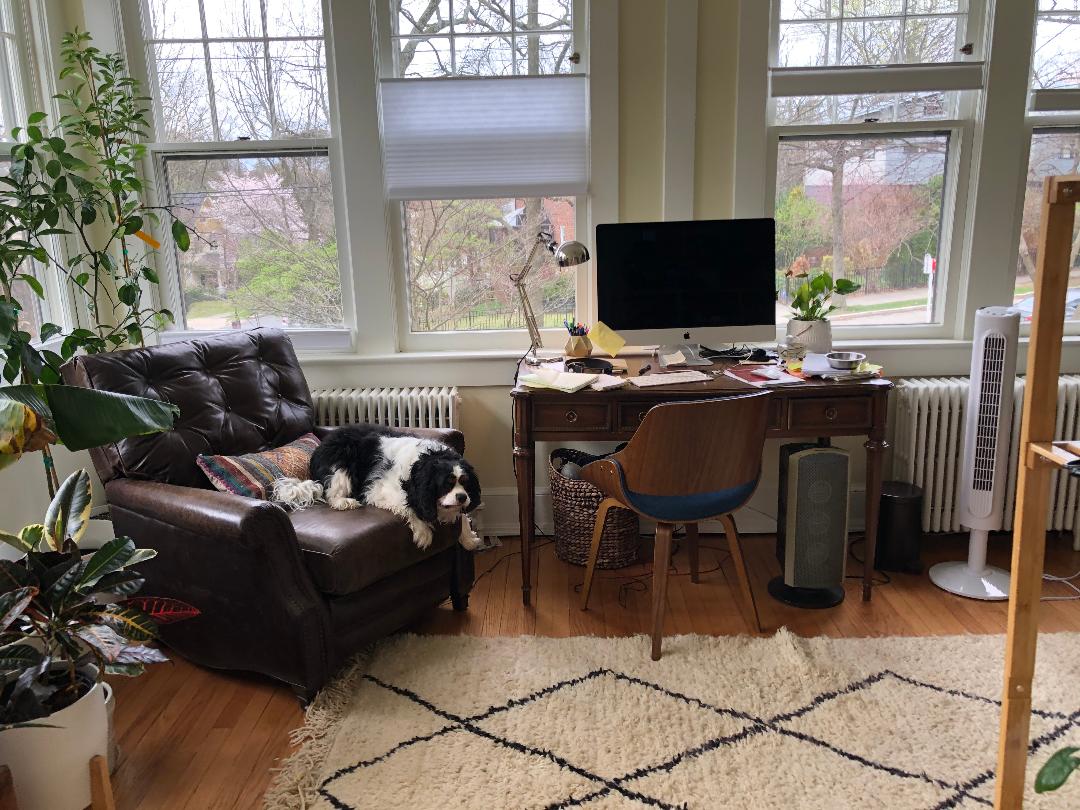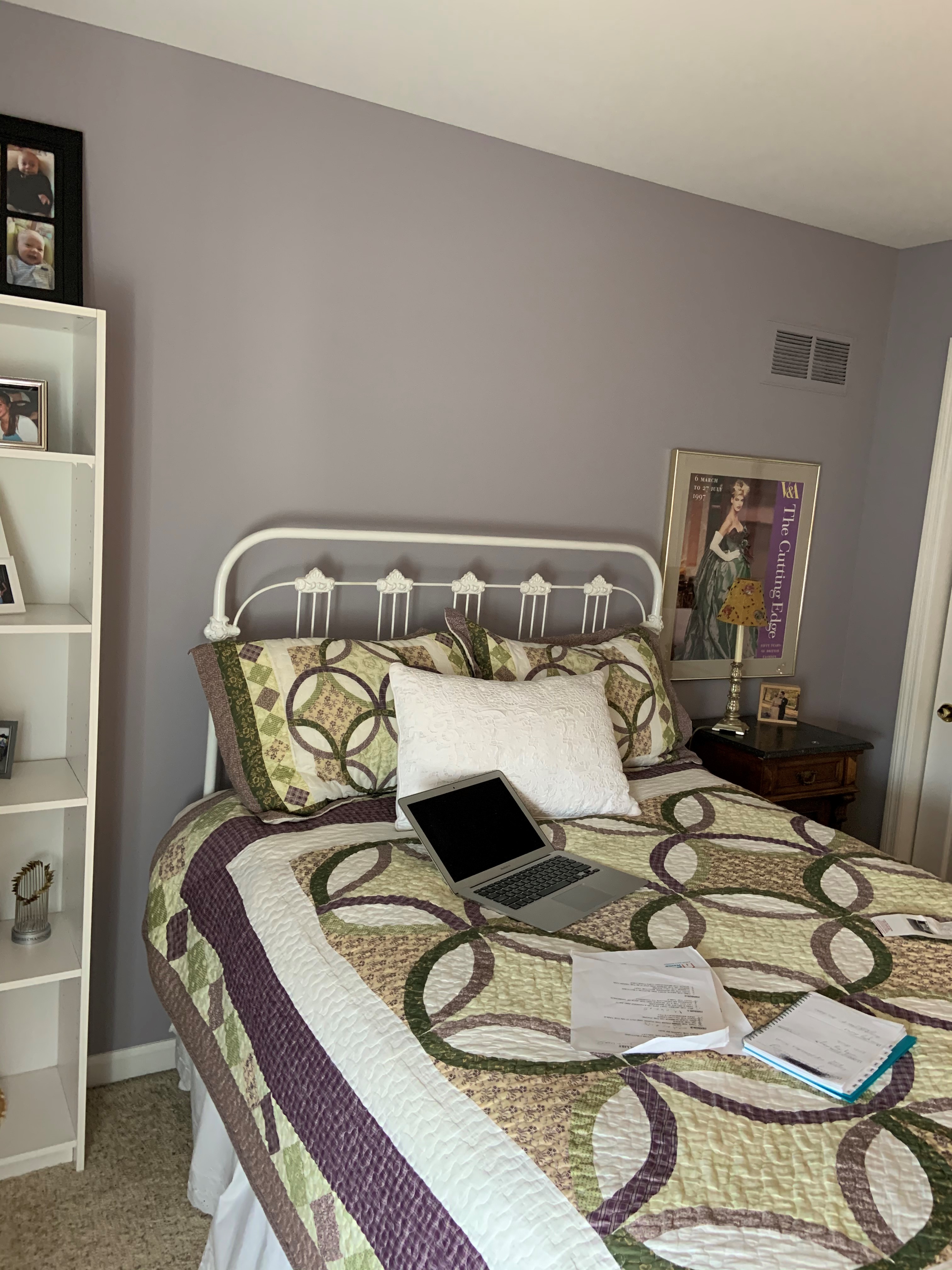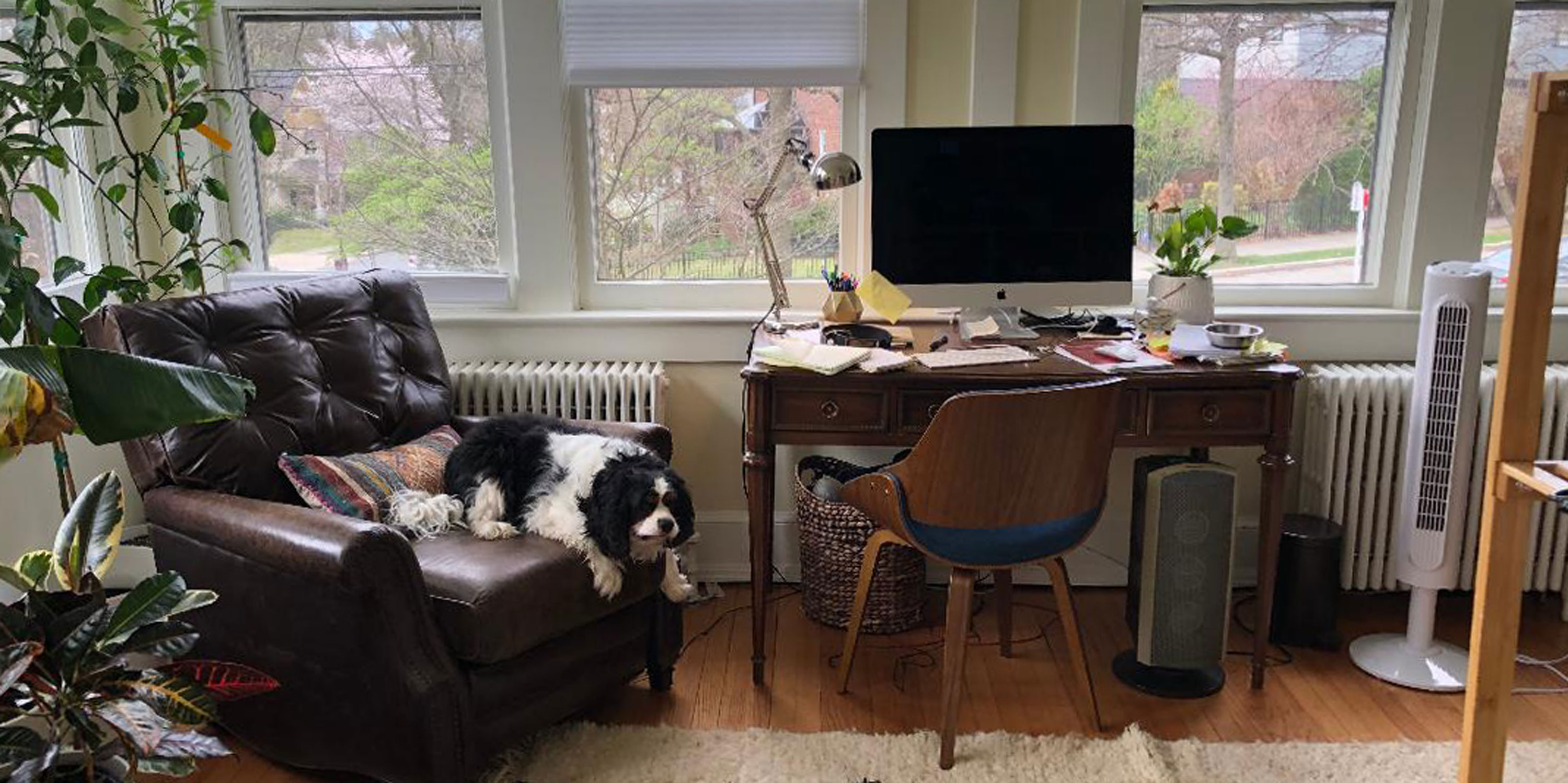The COVID-19 pandemic has quite literally created a world of uncertainty, and many people are feeling newly intense levels of stress. The constant news updates can be overwhelming, creating more questions about what’s to happen next. During a 24-hour news cycle focused on a global crisis, mental health experts have recommended turning off news update notifications and limiting news consumption to once daily. For journalists who are often running toward the latest developments to report on this novel virus, that’s not an option.
Journalists are considered essential workers in over 30 states across the country that have issued stay-at-home orders, including Illinois, Wisconsin, New York and Oregon, meaning they’re expected to continue operations and deliver crucial information. COVID-19 is an issue that can’t be fully grasped; it’s an invisible health crisis with no firm end in sight. With reporters having to become experts on this global pandemic that still has so much uncertainty attached to it, they’re facing more pressure than ever to provide the public with information and resources on an unprecedented source of stress in their life.
At the Wall Street Journal, Stephanie Armour, a healthcare policy reporter based out of Washington, D.C., has been closely following COVID-19 updates since December. Tracking the progression of the outbreak has been a worrisome experience for her.
“It definitely does touch you as a reporter…I’m not a person who ever cries. I’m just a very happy person generally,” she said. “I had one of those walks I was taking and I just broke down crying and sat on the curb. It’s just when you follow this closely in terms of what’s happened in China and you know what’s coming, it just makes it harder.”
For Armour and the other reporters I talked to, this inescapable source of stress is also their biggest motivator.
Laura Rodríguez is a reporter at the Chicago Tribune and a former multimedia reporter for HOY, which used to be the publication’s Spanish newspaper. Rodrígez focuses her coverage on the Latinx community, and during times of crisis like this, she aims to make sure that the voices of immigrant communities are heard in the news coverage.
“Sitting here and being able to still aim or attempt to make sure that they’re included in this very important conversation that…it’s no longer about a race, or a class or whatever. It’s simply about humanity,” she said. “Right now people are just trying to save humans, and those humans, that group of undocumented immigrants, they’ve always been ignored.”
“I’ve got stories that I have been working on that just got shelved completely in favor of a whole new slate,” said Stacey Sheridan, a reporter at the Wednesday Journal in Oak Park, Illinois. While this news cycle is dominated by coronavirus updates that can be nerve-racking, finding uplifting community stories has been her silver lining.
“Now more than ever they need news,” she said. “Normal news, but also the more community happy things like what people are doing to remain friendly and supportive, but at a distance.”
Lately, Armour has been checking in with emergency room doctors on the front lines in New York City, a coronavirus hot spot. She said being able to give healthcare workers an outlet helps maintain her drive.
“I think it gives them, as well, a sort of catharsis to talk about what they’re seeing,” she said.
Covering this crisis has also created a heightened sense of responsibility for journalists.
“You sort of hope that you’re educating people in terms of what the experts are saying. At the same time, you realize that you’re putting levers and pressure on the administration, just through the stories and questions that you’re asking,” Armour said. “So, you suddenly feel like you have two audiences.”
While these journalists are motivated to keep reporting on an unprecedented situation in the U.S., it hasn’t come without intense pressure and stress. Each of these journalists have been working remotely, yet they expressed that they have less of a handle on their work-life balance than ever before.
Since many of us are WFH and some peeps are sharing their personal bureau, here's mine. 11 pm and still sitting here… pic.twitter.com/81Pb7bX1ak
— Laura N. Rodríguez Presa (@LAURA_N_ROD) March 13, 2020
Rodríguez said it’s always been hard to set boundaries in this profession, but as updates on the virus now change rapidly each day, it’s nearly impossible.
“I mean, I can never get away. Sometimes, you kind of wish you were a little ignorant to it. You wish you didn’t think about it too much,” she said.
For many reporters like Rodríguez, their level of passion is what pushes them through.
“I wish I could say okay, you know what, I’m off at five. I’m getting off my phone, don’t call me, but that’s not how our profession works. It’s never been that way and especially now, there’s no way you can even take it like that.”
Armour and her husband have both been working from home since the outbreak intensified, with their teenage daughters also home from school. They’re all homebound, but the work-family balance isn’t there yet.

Armour’s work from home space, featuring her dog Apollo (Stephanie Armour, Wall Street Journal)
“We haven’t had a single family dinner,” she said.
Since being home, Sheridan said she’s worked every day with no limits on what hours she designates to reporting. “I can’t even remember what day of the week it is now,” she said.

Stacey Sheridan’s home office (Stacey Sheridan, Wednesday Journal)
If reporters can’t escape the news, how can they decompress?
Like other essential workers, the reality is that many journalists are now on the clock at all hours of the day, especially when updates on the pandemic are expected to be covered as they’re released. The public is turning to the news for lifesaving information on how to keep themselves safe, what to expect and where to turn for help. Given this elevated reliance, journalists covering the novel coronavirus may feel like it’s impossible to step away, or feel guilty when they do. Mental health experts say it’s vital to make at least some time each day to recognize their own feelings and reset.
Christina Sprayberry is a therapist at Beverly Therapists in Chicago. She said making sure people make time to restore is always important, but especially during times of increased stress. She recommends tuning into “renewal zones,” a concept from a book by Robert J. Wicks, an accredited psychologist. Sprayberry added that this is useful for everyone, not just journalists.
“Where are the places and what are the things that refuel us, where do we feel content, good, re-energized?” Sprayberry said. “This can be so many things, brainstorm it out; humor, movies, music, friends, nature, walks, creating, baking. What is that thing you do that allows you to just get lost, where time fades away and your moment of flow and being, and troubles fade? Take moments for this. It’s essential.”
Rodríguez said stepping away from her desk in the evenings and talking to the people that she loves is what helps her unwind.
“I sit on my couch and I turn on the TV and I drink a glass of wine, FaceTime someone,” she said.
Millennials are FaceTiming each other, drinking wine and sometimes, cry.
We did travel for spring break, like 10 years ago. Lol https://t.co/mfmflKJCvF pic.twitter.com/S9M6EdrBvI— Laura N. Rodríguez Presa (@LAURA_N_ROD) March 21, 2020
Unless people have worked in the profession, it can be difficult for them to understand what reporters’ jobs really consist of, which is why Rodríguez also finds comfort in other journalists.
“That’s one thing I love about the journalism community, specifically the Latino and young journalism community in Chicago — we are very tight, regardless of where we work, and that’s something we all appreciate very, very much,” she said.
Renewal zones for Sheridan include working on jigsaw puzzles and video-chatting with family.
Doing a virtual happy hour with my cousins. Gotta keep up the fun during isolation. pic.twitter.com/CtgVMhXqSK
— Stacey Sheridan (@StaceyPSheridan) March 20, 2020
It’s difficult to allocate personal time during this especially demanding news cycle, Armour said, but she tries to incorporate several renewal zone activities into each day.
“I take a daily or evening walk. I text and talk to friends. I hit the exercise bike if I can. Also Coke Zero. An abundance of caffeine,” she said.
Working from home can throw a wrench in normal schedules and hinder the rigidity of a normal routine. To maintain separation from work time and downtime, it’s helpful to create a sense of ritual in the work space, according to Sprayberry
“Think about what you do when you arrive and leave. Do you get tea, do you close a door?” Sprayberry said. “Establish some action that says ‘I am arriving here at work.’ ‘I am leaving work now.’”
As the uncertainty about how the coronavirus outbreak will evolve and affect different sectors of life, people are increasingly relying on the news media to keep them informed. No matter how the situation progresses, journalists will stay reminded of how critical their contributions are to keep people informed during an extraordinary time.
“You really feel like you’re playing a really important significant role, and this is why you got into the business,” Armour said.
For more on how to cope with increased anxiety brought on by COVID-19, visit Beverly Therapists’ newsletter.
Header photo from Stephanie Armour, Wall Street Journal




NO COMMENT